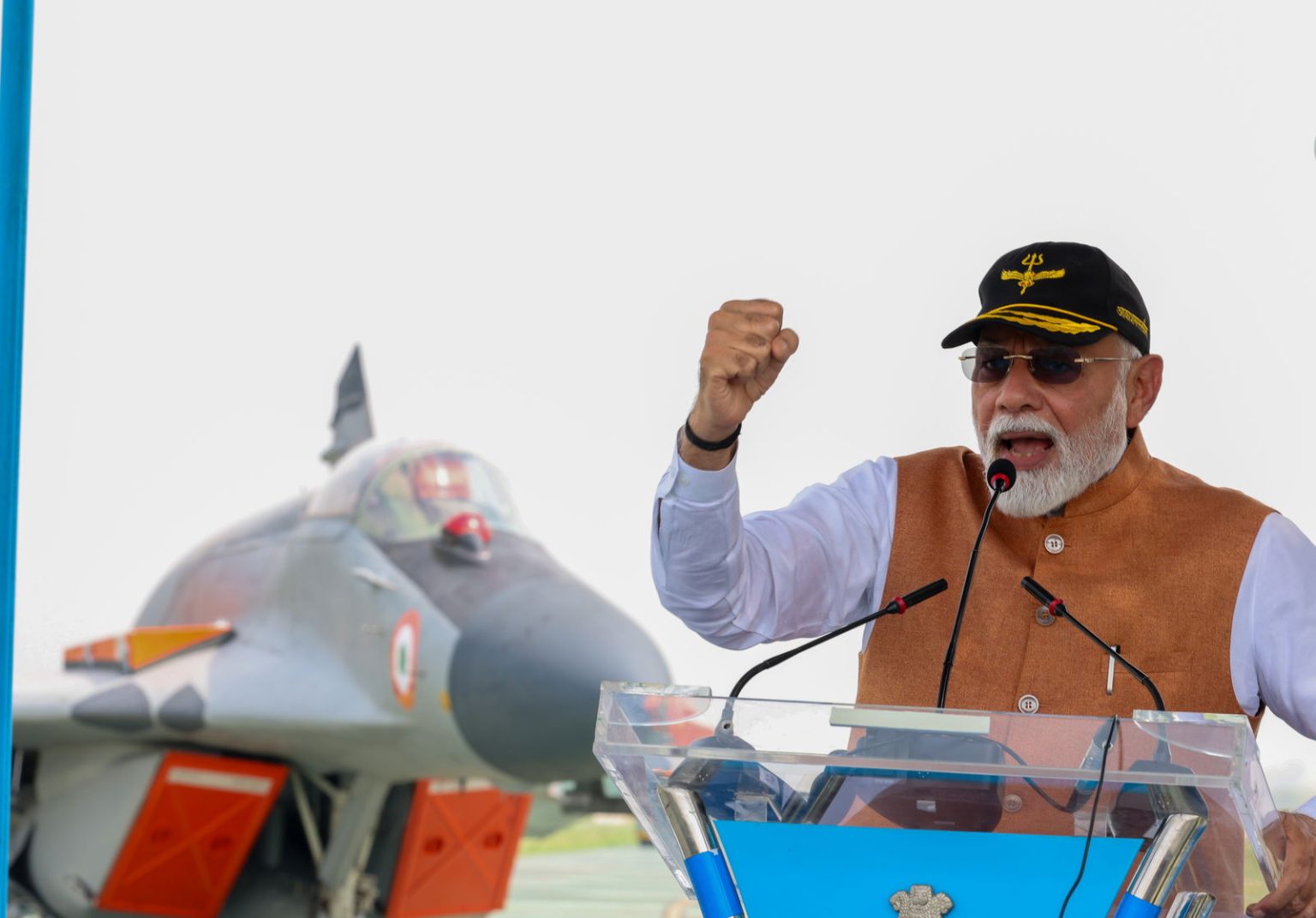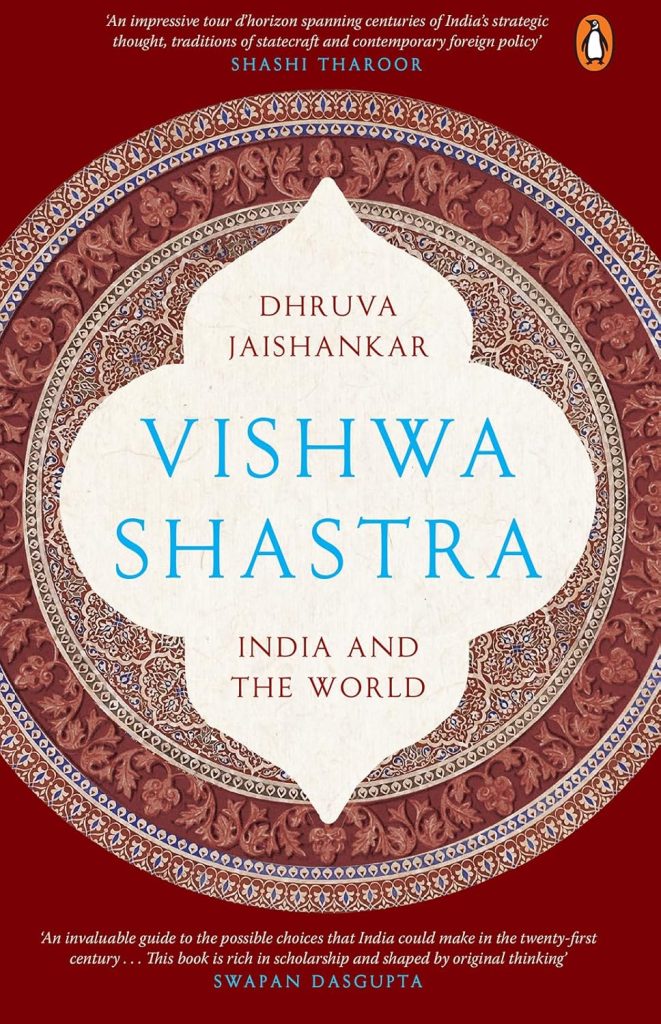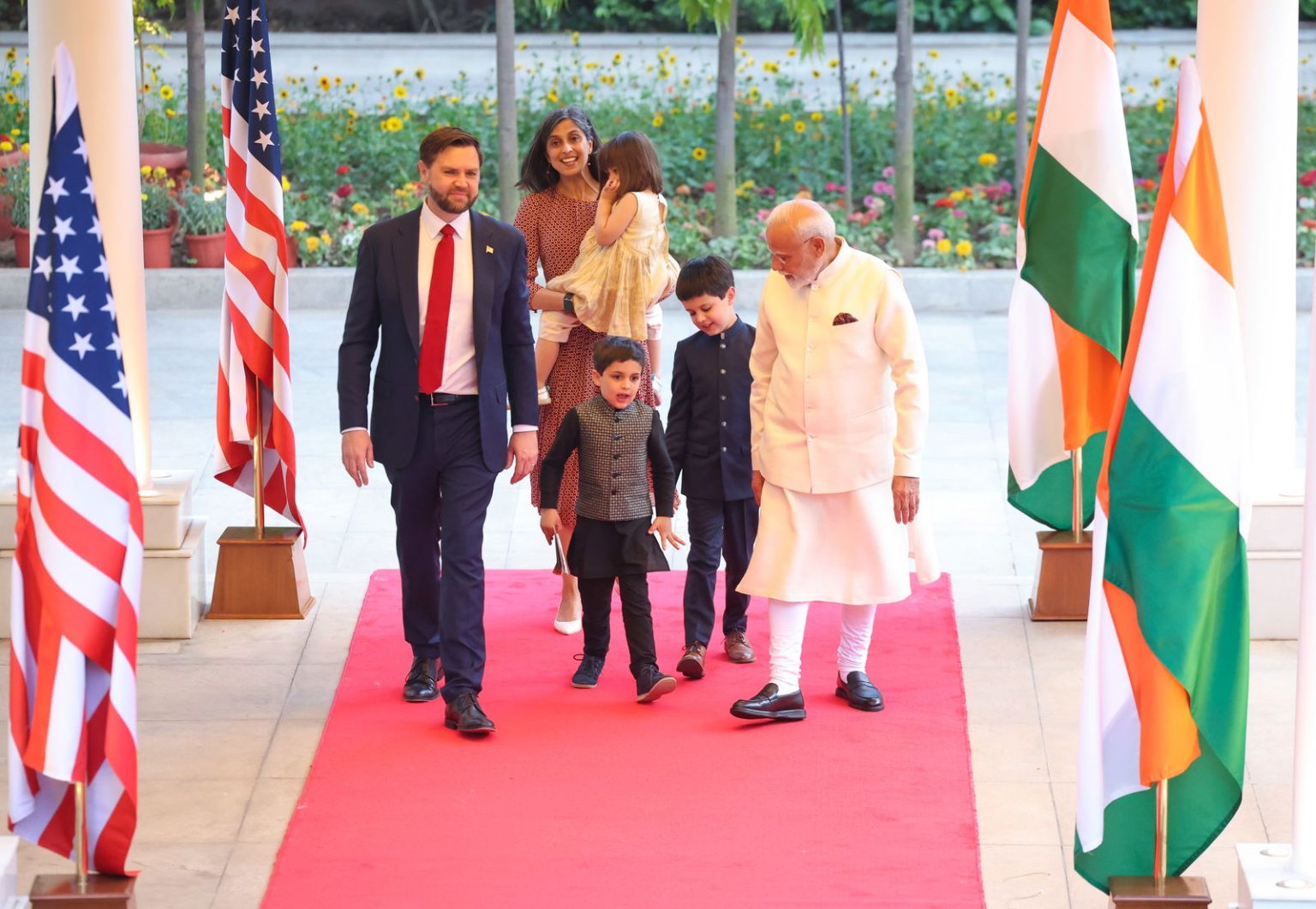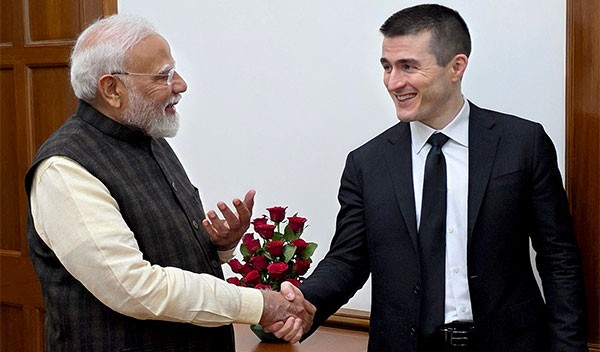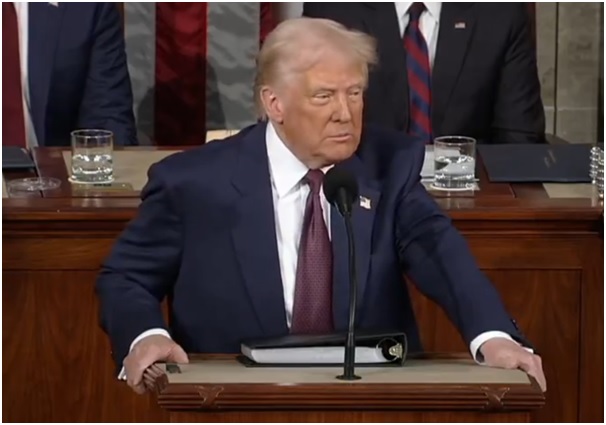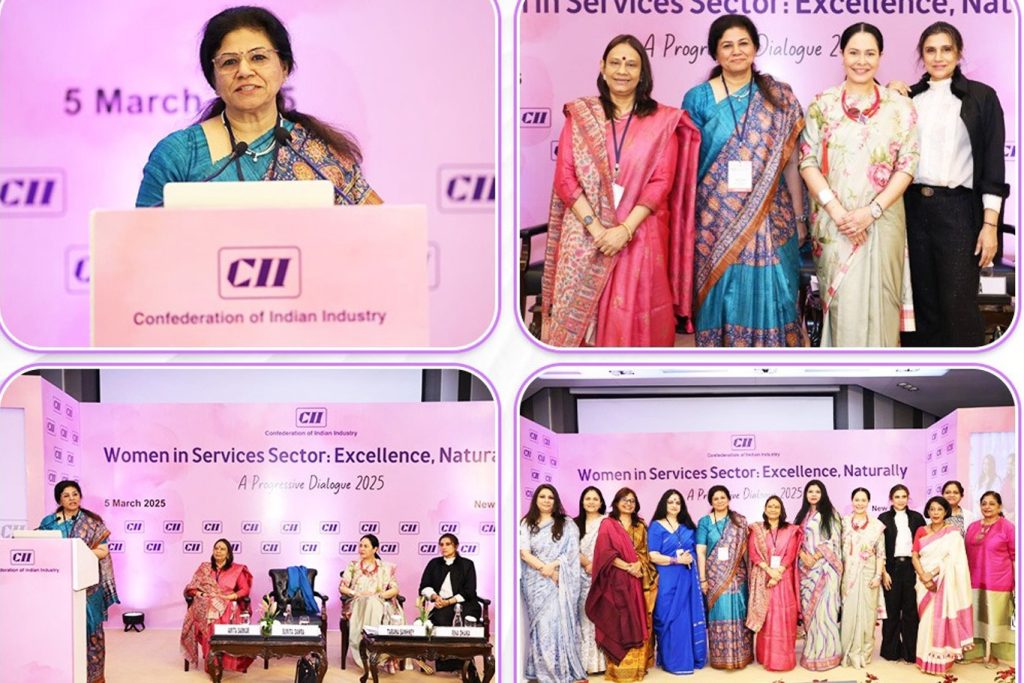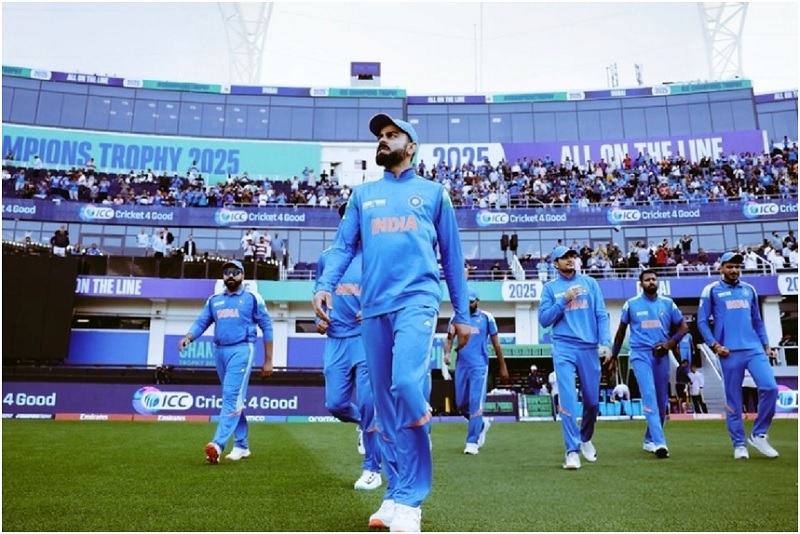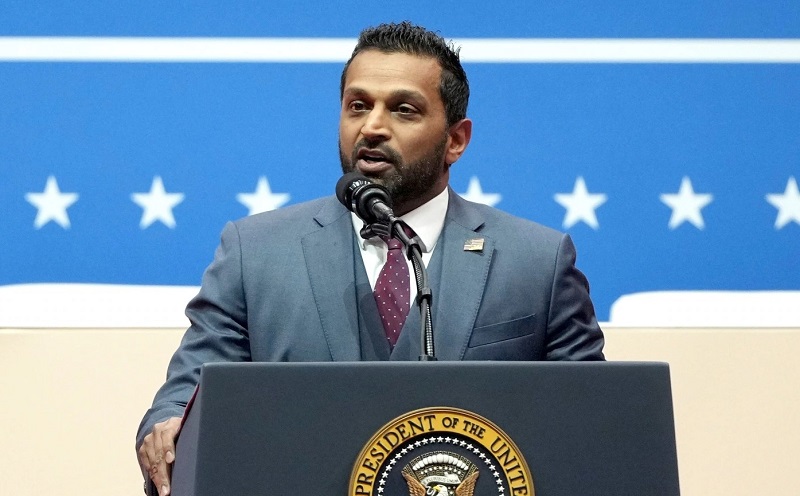In a powerful address delivered in Bikaner, Rajasthan, the Prime Minister articulated a new and resolute approach to national security, particularly in dealing with cross-border terrorism. While the speech touched upon various aspects of national development and infrastructure, its most striking and impactful segment was a stern declaration of India’s retaliatory doctrine, symbolically dubbed “Operation Sindoor.” This term, evoking the sacred vermillion mark worn by married women, was transformed into a metaphor for India’s fierce and unyielding response to any act of aggression that threatens its people and sovereignty. The genesis of this assertive stance, as highlighted by the Prime…
Author: Raj Shah
In the latest episode of Latitude at Frontline, host Nirupama Subramanian explores the geopolitical fallout from Operation Sindoor, a major military confrontation between India and Pakistan following a deadly terror attack in Pahalgam. The episode focuses on US President Donald Trump’s controversial claims that he brokered a ceasefire between the two countries—assertions that have been firmly contradicted by the Indian government. To unpack the implications, Subramanian interviews Lisa Curtis, a former Deputy Assistant to President Trump and senior director for South and Central Asia on the US National Security Council. Curtis, now a senior fellow at the Center for a…
In his first address to the nation after Operation Sindoor, Prime Minister Narendra Modi stated that India’s future course of action against terrorism would be contingent on Pakistan’s behaviour. He declared that Operation Sindoor now marks a new national policy against terrorism and that a new line has been drawn. On Monday, May 12, Prime Minister Narendra Modi firmly stated that India would not yield to any kind of ‘nuclear blackmail’ from Pakistan, emphasizing that the military actions taken against terrorism have merely been paused, not ended. During his first national address after the launch of Operation Sindoor, Modi reiterated…
Dhruva Jaishankar’s Vishwa Shastra: India and the World has emerged as a timely and significant contribution to the study of India’s foreign policy. In the wake of shifting global power dynamics and the resurgence of Donald Trump, global anxiety is rising over issues such as NATO’s future, a tariff war with China, and immigration policy changes. Against this backdrop, Jaishankar’s book offers clarity, grounded analysis, and a distinct Indian perspective on global affairs, making it relevant for scholars, diplomats, civil service aspirants, and engaged citizens alike. A Dual Approach: History and Strategy Vishwa Shastra neatly divides into two main parts:…
Usha Vance, the Second Lady of the United States and wife of Vice President J.D. Vance, gave an exclusive interview to NDTV during her family’s visit to India, describing the journey as a “trip of a lifetime.” A proud Indian-American, she spoke warmly about the significance of introducing her children to their cultural roots, the blend of traditions in her personal life, and her family’s enthusiastic immersion into Indian history, cuisine, and heritage during their visit. Usha emphasized that it was her children’s first trip to India, and they were thrilled to finally experience the stories and flavors they had…
A Brief Summary of Lex Fridman Podcast with Narendra Modi By Raj Shah Photo Courtsey: X.com On March 16, 2025 Lex Fridman, a Russian-American computer scientist, professor, AI researcher based at MIT and podcast host interviewed Indian Prime Minister Narendra Modi. Here is a Brief Summary of Lex Fridman Podcast with Narendra Modi. Lex Fridman introduces his conversation with Indian Prime Minister Narendra Modi as one of the most profound discussions of his life. Mr. Fridman acknowledges Modi’s incredible journey from poverty to leading India, the world’s largest democracy, and highlights his global impact as a leader and peacemaker.…
Photo Courtesy : X.com On March 4, 2025, former President Donald Trump delivered a speech focusing on illegal immigration and his administration’s efforts to curb border crossings. During the address, Trump highlighted what he called “the most sweeping border and immigration crackdown in American history.” He claimed that illegal border crossings had dropped to historic lows, a statement that is supported by recent data from the U.S. Customs and Border Protection (CBP). Trump stated, “As a result of our strong actions, illegal border crossings last month were by far the lowest ever recorded.” According to BBC and NBC fact-checks, this…
The labour force participation rate for women in India has witnessed a remarkable rise from 23% in 2017-18 to approximately 42% in 2023-24, with a significant increase in educated women joining the workforce, Union Labour and Employment Secretary Sumita Dawra said on Wednesday. Speaking at the Women in Services Sector CII Dialogue 2025, Dawra highlighted the progress made by women across various sectors, including agriculture, manufacturing, and services, marking their growing influence in India’s economic landscape. She reiterated the government’s commitment to the target set in the Union Budget 2025-26, which aims for 70% of women to be engaged in…
Photo Courtesy X.com India booked their spot in the Champions Trophy 2025 final with a thrilling four-wicket victory over Australia at Dubai International Cricket Stadium on March 4. They will now face the winner of the South Africa vs New Zealand semifinal, scheduled for tomorrow in Pakistan. Chasing a target of 265, India became the first team in this tournament to surpass 250 runs in Dubai. Historically, the venue has witnessed only three successful chases above 250, with Sri Lanka’s 285-run pursuit against Pakistan in 2013 remaining the highest. Australia, after choosing to bat first, put up a total of…
Kash Patel’s swearing-in as the new Director of the Federal Bureau of Investigation (FBI) marked a significant moment for the Indian American community, particularly for those supporting the Republican Party and former President Donald Trump. His decision to take the oath of office on the Bhagavad Gita underscored the growing acceptance of diverse religious traditions in American governance. Political analysts see Patel’s appointment as a step forward for Indian Americans within the Republican Party, which has historically had fewer representatives from the community. Robinder Sachdev, president of the Delhi-based Imagindia Institute and co-founder of the US India Political Action Committee,…



